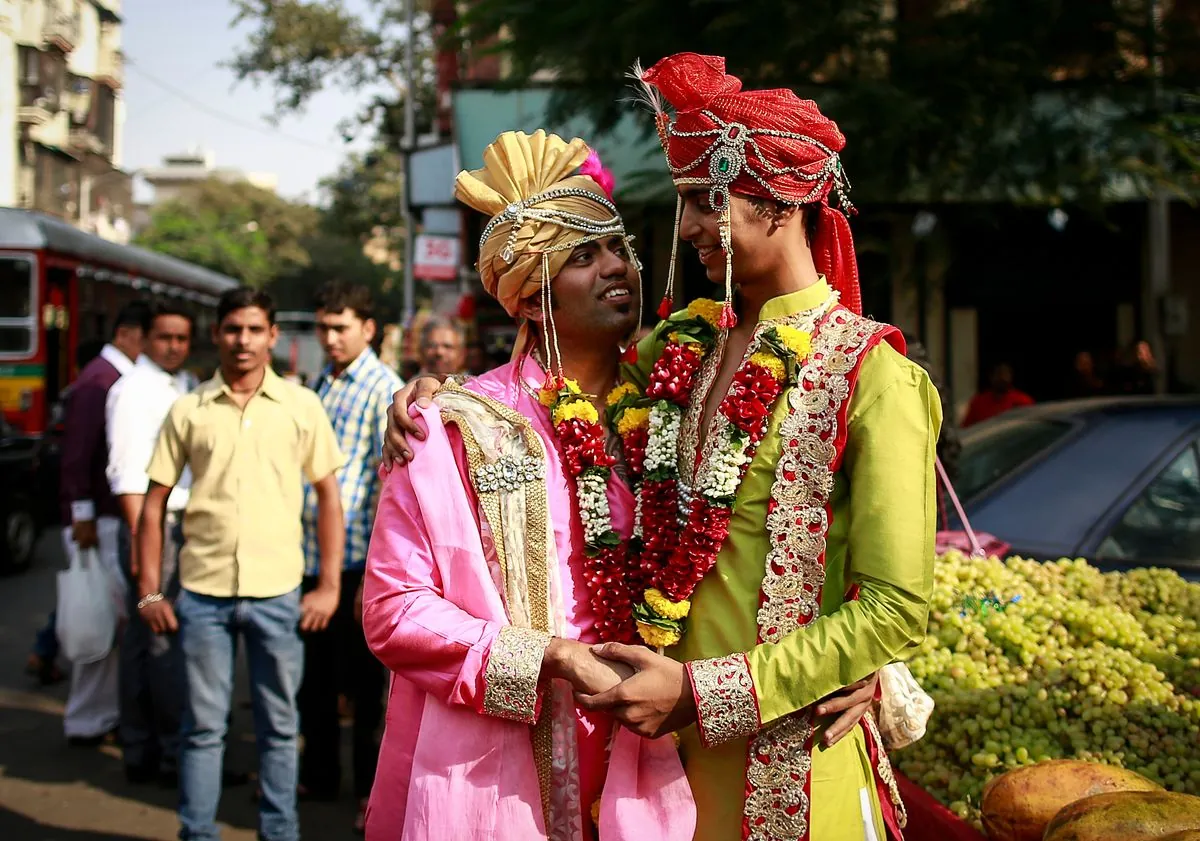In a significant move towards LGBTQ+ inclusion in Indian politics, two major opposition parties have recently made historic appointments. This development comes as the government seeks public input on policies affecting the LGBTQ+ community, marking a potential turning point in the country's approach to queer rights.
The Indian National Congress, one of India's oldest political parties founded in 1885, has established a new internal group dedicated to promoting LGBTQ+ rights. Mario da Penha, a prominent LGBTQ+ activist, has been appointed to lead this unit within the party's All India Professionals' Congress division. Da Penha described this initiative as the "only representative framework for queer people within any recognised national political party in India."
Simultaneously, the Nationalist Congress Party - Sharadchandra Pawar has made history by naming Anish Gawande as its spokesperson, making him the first openly LGBTQ+ individual to hold such a position in a major Indian political party. Gawande, reflecting on this milestone, stated, "If you'd told me ten years ago that it would be possible to be out and in Indian politics, I would have scoffed in disbelief."
These appointments come against the backdrop of India's complex legal landscape regarding LGBTQ+ rights. In 2018, the Supreme Court of India decriminalized homosexuality, overturning Section 377 of the Indian Penal Code, which had been in place since 1861 during British colonial rule. However, in 2023, the court disappointed many by declining to legalize same-sex marriage, deferring the decision to parliament.
The government, led by Prime Minister Narendra Modi, has maintained that the legislature is the appropriate platform to address the issue of same-sex marriage. On September 3, 2024, the Department of Social Justice and Empowerment invited public input to ensure that policies and initiatives for the LGBTQ+ community are inclusive and effective. This move demonstrates a growing recognition of the need to address LGBTQ+ rights at the national level.
"Same-sex marriages are not comparable with the Indian family unit concept of a husband, a wife and children"
Despite this stance, the government has implemented several measures to support the LGBTQ+ community. These include enabling same-sex couples to access government food programs as families, open joint bank accounts, choose each other as nominees, and seek medical care without discrimination.
The LGBTQ+ movement in India has made significant strides since the 1990s. Notable milestones include the first pride parade held in Kolkata in 1999, the recognition of transgender individuals as a "third gender" by the Supreme Court in 2014, and the Indian Psychiatric Society's declaration in 2018 that homosexuality is not a mental illness. In 2020, India took another progressive step by banning conversion therapy for LGBTQ+ individuals.
As India, the world's largest democracy with a population exceeding 1.4 billion, continues to grapple with LGBTQ+ rights, these recent political appointments and policy initiatives signal a potential shift towards greater inclusivity and representation. The coming months and years will likely see further developments in this ongoing dialogue about equality and acceptance in Indian society.
